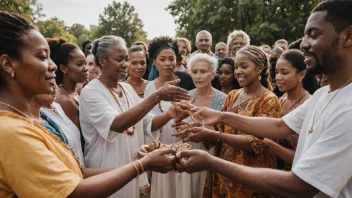What is cultural criticism?
Cultural criticism is an analytical approach that examines cultural phenomena, texts, and practices to understand their meanings, implications, and social contexts. It often involves critiquing the cultural products of society, such as literature, art, music, and media, to reveal underlying ideologies and power structures.
Why is cultural criticism important in the digital age?
In the digital age, where information is disseminated rapidly and broadly, cultural criticism plays a crucial role in helping individuals navigate complex cultural landscapes. It encourages critical thinking about the content we consume online and fosters awareness of how digital platforms shape our perceptions and interactions.
How has the internet changed cultural criticism?
The internet has revolutionized cultural criticism by providing a platform for diverse voices and perspectives. Social media, blogs, and online forums allow critics to share their insights and engage with audiences in real-time. This democratization of criticism enables a broader range of cultural dialogues and challenges traditional gatekeeping in academia and media.
What are some key themes in contemporary cultural criticism?
- Identity and Representation: Examining how various identities (race, gender, sexuality) are portrayed in digital media.
- Consumer Culture: Analyzing the impact of consumerism on culture and individual identity.
- Digital Activism: Exploring how social media is used as a tool for social change and political engagement.
- Surveillance and Privacy: Critiquing the implications of data collection and surveillance in our digital lives.
Who are some significant figures in cultural criticism today?
Several contemporary thinkers and critics have made significant contributions to cultural criticism in the digital age. Notable figures include:
- bell hooks: A prominent cultural critic and feminist theorist known for her work on race, gender, and media.
- Judith Butler: A philosopher and gender theorist whose ideas on gender performativity have influenced cultural criticism.
- Arundhati Roy: An author and activist whose critiques of globalization and neoliberalism have resonated globally.
- Rebecca Solnit: An essayist whose work often addresses issues of power, culture, and social justice.
How can individuals engage with cultural criticism?
Engaging with cultural criticism can be done in several ways. Here are some suggestions:
- Read critically: Approach cultural texts with a questioning mindset, considering the underlying messages and contexts.
- Participate in discussions: Join online forums or social media groups focused on cultural critique to share ideas and perspectives.
- Write your own critiques: Start a blog or contribute to existing platforms to express your views on cultural issues.
- Support diverse voices: Follow and amplify critics from various backgrounds to enrich the cultural discourse.
What challenges does cultural criticism face today?
Cultural criticism today faces several challenges, including:
- Information Overload: The sheer volume of content available online can make it difficult to discern valuable critiques from noise.
- Commercialization: The influence of advertising and corporate interests can dilute critical voices and promote conformity.
- Polarization: The digital landscape can create echo chambers, limiting exposure to diverse perspectives and fostering division.
What is the future of cultural criticism?
The future of cultural criticism is likely to be shaped by ongoing technological advancements and evolving cultural dynamics. As digital platforms continue to evolve, cultural critics will need to adapt their methods and approaches to engage with new forms of media and communication effectively. The importance of fostering critical thinking and dialogue in an increasingly complex digital world will remain paramount.
Conclusion: Cultural criticism in the digital age is vital for understanding and navigating the complexities of contemporary culture. By engaging with cultural critique, individuals can become more informed consumers of media, challenge prevailing narratives, and contribute to meaningful cultural dialogues.






